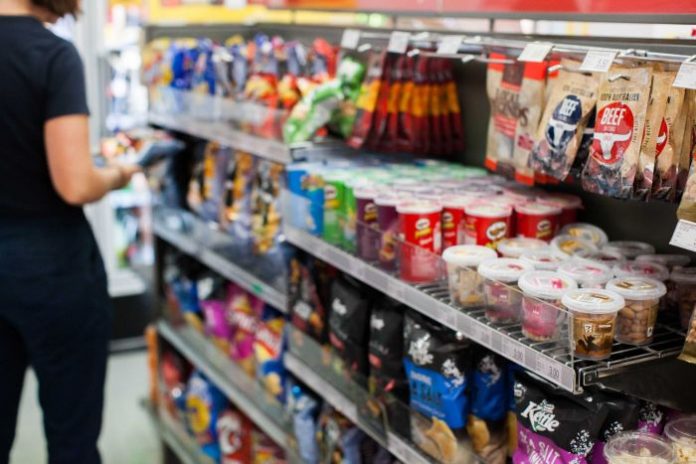Obesity experts are calling on the Government to ramp up regulations around food manufacturing as new research reveals almost half of all processed supermarket food is considered “discretionary” — or junk.
In a report published yesterday by the George Institute, researchers ranked the nutritional value of tens of thousands of packaged foods and beverages on sale in Australian supermarkets.
They found that despite efforts in recent years to improve nutritional standards of processed foods, little progress had been made overall when it came to Australia’s packaged food supply.
Gary Sacks, co-author of the study and associate professor at Deakin University’s Global Obesity Centre, said government action was urgently needed to encourage manufacturers and retailers to make foods healthier.
“We know that unhealthy diets are the biggest contributor to poor health in Australia, and at the moment Australians’ diets are dominated by packaged food,” Dr Sacks said.
Jane Martin, executive manager of the Obesity Policy Coalition, which includes the Global Obesity Centre, said without stricter regulations, brands had little incentive to reduce the salt, sugar, and saturated fat content in their products.
“There’s no accountability at the moment, and that’s the problem,” Ms Martin said.
“For adults, 35 per cent of the energy they’re consuming every day is coming from highly processed foods, and for children, it’s even higher — 41 per cent.”
In Australia, nearly two thirds of adults and one quarter of children are overweight or obese. Excess weight is a major risk factor for cardiovascular disease, type 2 diabetes, and some cancers.
“This is an urgent and serious public health issue,” Ms Martin said.
Using the government’s Health Star Rating System, the researchers assessed the nutritional quality of 32,000 products by 33 major food and beverage brands, including Heinz, Kellogg’s and Nestle.
Products included breads, cereals, pasta, cheese, desserts, processed meats, and fruit juice.
“We took a snapshot of what our packaged food supply in Australia looks like … by food manufacturer and by product category,” Dr Sacks said.
Each product was rated between 0.5 and 5.0 stars (least healthy to most healthy), assessed for its level of processing and nutrient composition, and classified as a ‘core’ or ‘discretionary’ food.
Between 2017 and 2018, 16 brands recorded a fall in their average health star rating (HSR), eight experienced an improvement, and nine remained unchanged.
“One year isn’t a very long time [to study], but it is disappointing that there has been such little change … particularly given how important diet is to the health of Australians,” Dr Sacks said.
Overall, the researchers found A2 Dairy, Sanitarium, and Nudie Foods were the healthiest brands (with an average of 4.1 stars), while Frucor, Mondelez, and Bundaberg Brewed Drinks were the least healthy (with an average of 1.3 stars).
Of the major supermarkets’ own-brand products, Woolworths came out on top with an average of 3.2 stars, followed by Coles on 3.0, ALDI on 2.7, and IGA on 2.6.
“For the most part, own-brand products sort of match the branded products from a nutrient point of view,” Dr Sacks said.
The researchers found only four in 10 of IGA and ALDI’s own-brand products were considered ‘healthy’ (3.5 stars and above), and that ALDI had the highest proportion of ultra-processed foods (which tend to contain additional sugars, oils, fat and salt).









